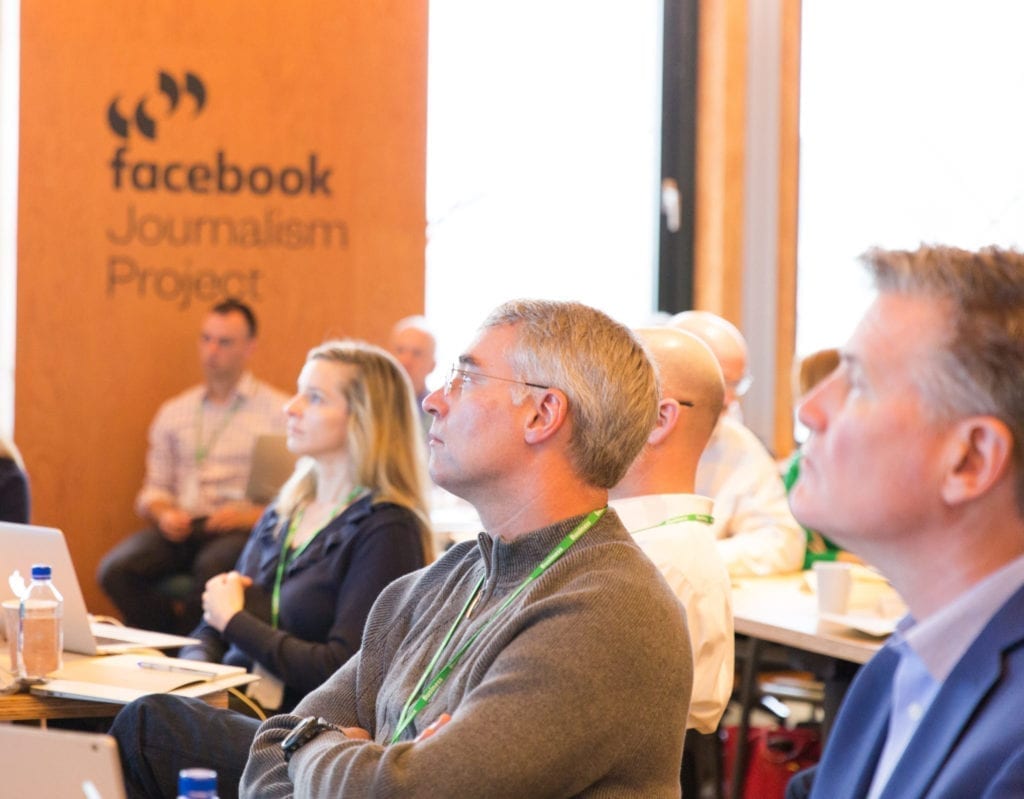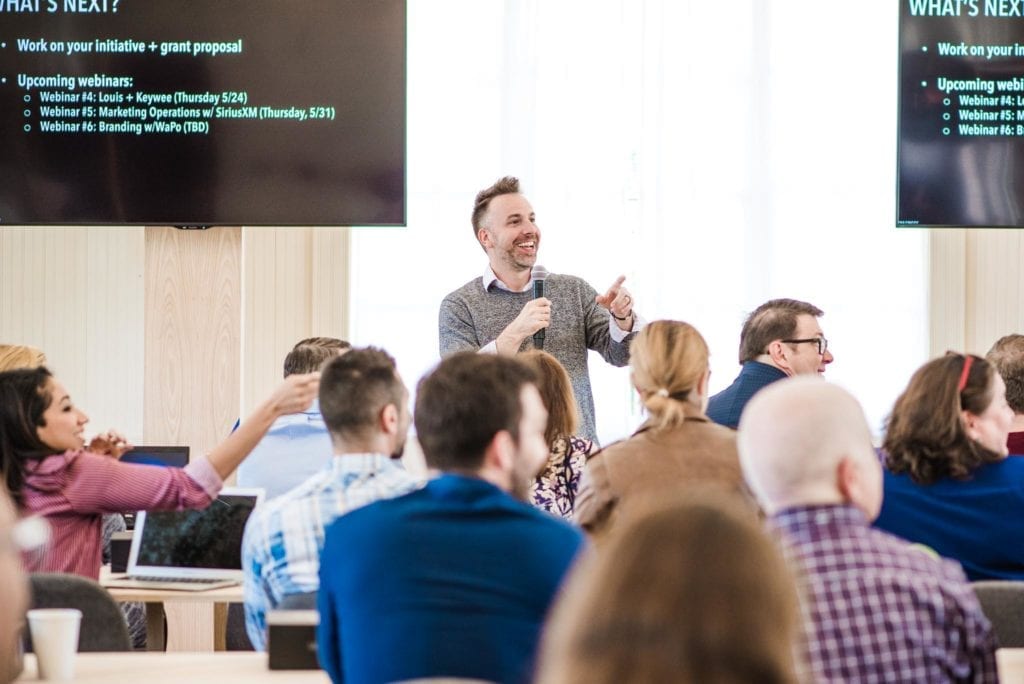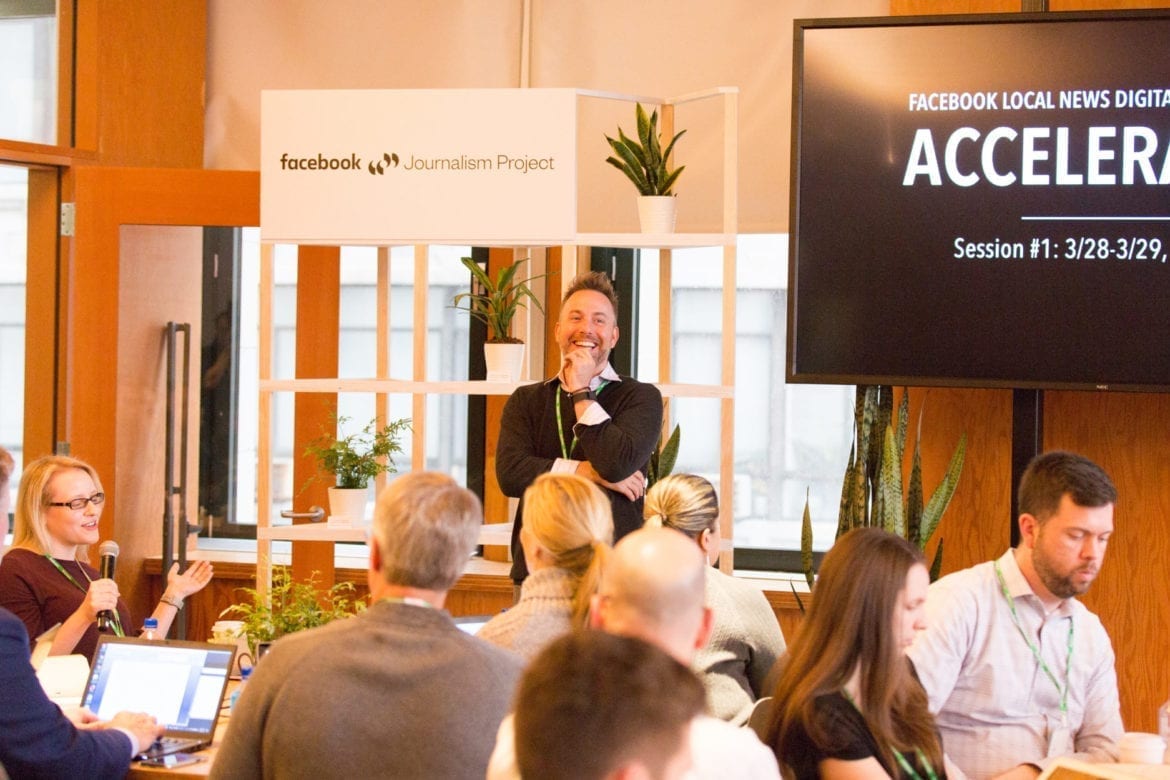|
Getting your Trinity Audio player ready...
|
Facebook’s relationship with the publishing industry is not exactly the best that it has ever been, with its new, controversial political ads policy, and decision to deprioritize publishers on its News Feed.
Surprisingly, there is one area where Facebook is receiving kudos for its journalism initiative, the Local News Subscriptions Accelerator program.
The Local News Subscriptions Accelerator, a part of the Facebook Journalism Project, is a $3 million program designed to help news publishers build their digital subscription revenues.
Facebook wrapped up a pilot of the 3-month-long program a short while ago, to general acclaim from the publishers involved.
“It’s a mindset shift,” said Peter Doucette from The Boston Globe, a participant in the program as well as a guest speaker, sharing case studies from what the Globe has learned. “We believe our journalism is worth paying for and we may not have all the answers, but we experiment. And every day or every week we look at the numbers. We are committed to growth, every week for the long term.”

Facebook hosted over 40 executives from 14 metro news publishers representing the country’s big newspaper chains, including the Dallas Morning News, USA Today, San Francisco Chronicle and Seattle Times.
Participants in the program, which included digital marketing, audience development, newsroom, data and analytics and social media leads, came from publications with varied digital subscription model histories—from not yet launched to six months old to five years or more.
“This accelerator program illustrated how Facebook and similar companies have the resources and connections to be able to assemble such a wide-ranging group of local publications and expert coaches,” said Mark Campbell, SVP of digital marketing at Tronc’s Tribune Interactive, and a participant.
The group dove into best practices for building and growing a digital subscription business, from how to build products that generate subscriptions, data benchmarking and optimizing owned marketing channels, to yes, “gateways” or “paywalls” and how to predict the likelihood that a casual reader will one day subscribe, according to the Facebook recap.

The pilot had hands-on workshops led by news industry veteran Tim Griggs, a grantmaking program organized by The Lenfest Institute for Journalism, and regular reports on best practices authored by both The Lenfest Institute and the Facebook Journalism Project.
“We’re committed to helping to foster a sustainable news industry — from distribution to monetization through marketing, subscription tools, and better analytics,” Facebook said in a statement. “We’ll continue working across the industry to support the quality journalism our society relies on.”
Talking about how the Accelerator will help metro newspapers take their digital subscription business to a new level, Dorrine Mendoza, from News Partnerships at Facebook, said, “Grant funding will empower each publisher to implement solutions that help elevate their digital subscription business.”
Facebook has recently stepped up its training and outreach to local news outlets in an effort to repair its image with publishers, who have been adversely affected by algorithm changes and the platform’s dominance over digital ad dollars.
This initiative is a part of Facebook’s effort to provide tools and trainings to newsrooms and journalists, to ensure their platform connects people to quality, trusted and local news.
“We will be making additional investments in organizations and programs committed to strengthening and advancing the future of journalism, and sharing more on that soon,” said Campbell Brown, Head of News Partnerships at Facebook.
Facebook also assured that while it has decreased news overall by 20% in the news feed, it has stabilized distribution for small and medium-sized local publishers, with some publications up or down a few percentage points based on external factors like the news cycle and competition. Beyond the news feed, the Menlo Park company is also adding new sections to Facebook to boost local news, like “Today In,” a spokesperson informed.


